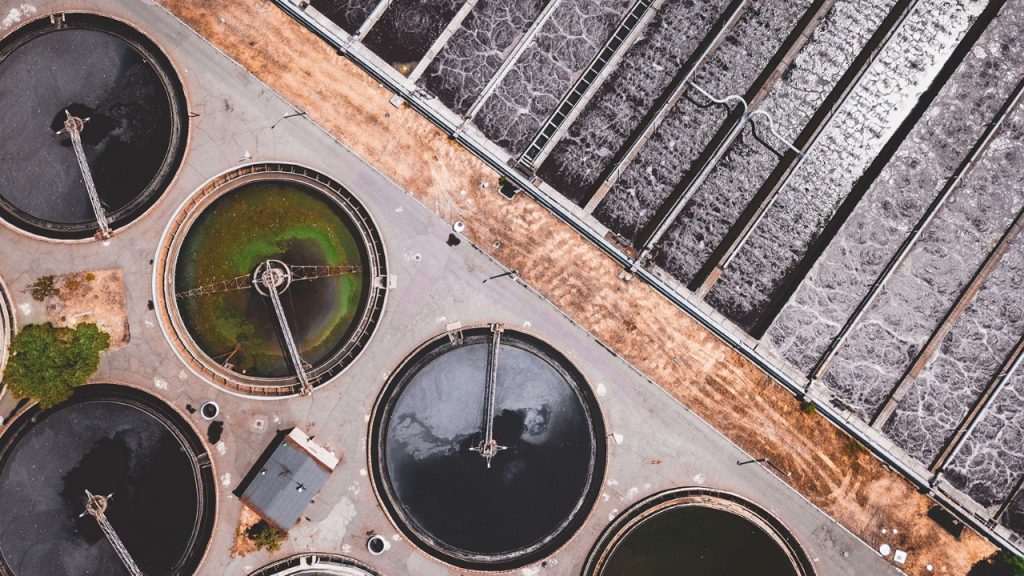Overview
Wastewater treatment plants are under growing pressure to improve their facilities in order to cope with population increase, industrial expansion, and tighter regulations. However, upgrading is not an easy procedure, and the plants may encounter challenges. We at jateen Trading Co. can assist your wastewater treatment plants overcome hurdles and allow for a quick and painless upgrade. Plant operators must deal with rising demand and increasingly demanding environmental criteria while cutting operational costs when it comes to wastewater treatment. Despite the numerous and intricate hurdles, the opportunities are appealing. Accelerating the adoption of high-efficiency wastewater treatment technology will not only increase wastewater operations’ productivity. Moreover, they will also result in large emissions reductions, indicating a big step forward in combating climate change’s effects. Furthermore, these modern, long-term wastewater treatment technologies are currently available.
We provide an alternative approach to plant growth. Without the need for additional land, our technique may considerably enhance the capacity of existing biological treatment systems.
It can be tempting to maintain the existing solution when it comes to water and wastewater management at your organization. However, in today’s environment of diminishing resources and regulatory pressure, the “if it ain’t busted, don’t fix it” approach may be riskier than you realize.
Regulations for the environment and long-term wastewater treatment
Wastewater treatment plants have been under pressure in recent years. This is to adopt more sustainable methods in order to demonstrate environmental, social, and governance trends in their operations. Plant upgrades and capital expenditures on system enhancements are driven mostly by new regulatory requirements.
Traditional facilities are facing new obstacles as a result of new regulations:
- Many wastewater treatment plants are getting affected by the new regulations and rules that are put forward.
- Today’s pollutants are arguably more complicated in terms of their nature and quantity than those of the past.
- Existing wastewater treatment systems are being taxed by population increase, necessitating the construction of additional plants.
- Urbanization creates new sources of pollution that aren’t usually manage by wastewater treatment.
Today’s industrial facilities must meet more stringent regulatory requirements. They must also assure the safety of their personnel and the communities in which they operate, all while balancing dependable performance and cost.
Need a better operational team, equipment, or both?
As previously stated, many existing water and wastewater treatment plants have been neglected for decades due to a lack of funding. It’s possible that outdated technology isn’t cost-effective or meets current regulatory and product standards. Rather than attempting piecemeal replacements, it may be more cost-effective to take a comprehensive approach to plant improvement. Investing in a circular system often yields lower maintenance and operating costs, better process outcomes, and a quick return on investment. When it comes to improving your wastewater treatment facility, it’s common to use a combination of internal improvements and outside help.
Operational expertise is build on three foundations:
- People: well-trained operational teams, subject matter experts, and strong leadership
- Technology: easy-to-use technologies that enable employees to improve their performance and create long-term systems.
- Process or procedure: a set of guidelines that ensures consistent, efficient results and encourages ongoing improvement.
What are the different types of OPTIMIzATION or operating partnerships?
- Third parties own both water and wastewater systems: Many industries specialize in providing skilled management and labor for both water and wastewater systems. These service providers specialize in water treatment. Moreover, they can offer greater expertise in areas such as operations, staffing, and training, capital improvement projects, etc. This may allow you to concentrate on your core capabilities while also saving money by implementing proven best practices.
- Agreements for long-term O&M collaboration: These types of partnerships enable you to create a more circular, ecologically friendly process or system.
- Optimization services: It can help existing staff and plant operations at the water, and wastewater treatment plants reach improved levels of efficiency, effectiveness, and customer service. Optimization specialists can help you improve processes, adopt new efficiency measures, and save up to 20% operational costs.
Bottom Line
If you’re planning to build a new wastewater treatment plant or improve an existing one, make sure you consider the following services:
- Transition strategies to ensure that no functionality is lost or operations are disrupted.
- Guarantees of performance
- Exceptional safety records
- Examining the trends and performance of processes.
- Monitor the water chemical or pollution levels remotely in compliance with regulatory norms.
- A system for detecting and resolving difficulties before they become serious ones.
Water and wastewater plant managers need guaranteed system availability, effluent quality, and constant amounts to optimize treatment or reuse in an industry where uptime is essential. New and changing environmental regulations and requirements, aging infrastructure and equipment, and operational competence are just a few of wastewater treatment facilities’ problems. Do you find this article interesting? Then please check out the rest of the blogs too. If you have any queries regarding operational challenges at the modern wastewater treatment plant, then please do contact us. We are happy to hear from you!


